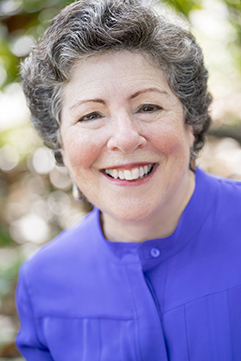Congregation Children of Israel is a 150-family congregation in Athens, GA. As a small congregation, we were looking for creative ways to welcome and engage families with young children, one of our target membership demographics. The answer came in the form of PJ Library®, which enables us to offer book subscriptions to local families raising Jewish children ages six months to 8 years. Our congregation joined the program in 2007, and it has been a huge success.
The fact that we could now offer something to families with young children at no charge and with no strings attached proved to be an offer too good to refuse. Within a year and a half, our young family memberships grew by 66%, and ever since, young families have consistently represented a sizable percentage of our new members. At the same time, community members have grown to appreciate our success in engaging young families, and “PJ parents” have gone on to become congregational leaders, improving the overall congregational attitude toward young families.
Of course, joining the initiative didn’t come without challenges. The first was obtaining financial support to fund our congregation’s participation. As the synagogue’s PJ Library® coordinator, I approached congregants, non-members, the sisterhood, and the rabbi for donations; the Harold Grinspoon Foundation matched the funds we received. Although fundraising is still an ongoing challenge, it has gotten easier since our congregation received a PJ Library®-URJ-WRJ Partnership Grant – but more on that later.
We also needed to find potential subscribers, and in the beginning, we relied heavily on word of mouth. I asked young Jewish families I knew to spread the word, employed my “Jewdar” to locate potential participants, and requested referrals through the temple bulletin. Participation grew to between 60 and 70 children, which the Harold Grinspoon Foundation (which serves as the national PJ Library office) considered to be a remarkable number for a community our size. Today, PJ parents and others in our community continue to recruit new participants.
Next came the challenge of providing synagogue programming that would attract young families. We soon formed a parent steering committee to assume the bulk of this responsibility. The committee created a variety of programs for children, both at the temple and out in the community. We hosted pajama parties at which donors or local authors read books to children. We offered a wine and cheese party for parents that included free babysitting for children, provided by temple and youth group members.
We also hosted a Rosh HaShanah-themed dinner at a local farm-to-table restaurant, and a picnic at a local lake. One of our most memorable special events was a congregation-wide “Klezmer and Kugel Party,” during which we projected the PJ Library® book Kugel Valley Klezmer Band on a large screen as the head of the University of Georgia Drama Department (a PJ parent) provided a dramatic reading of the book, accompanied by our local klezmer band.
Partnering with other Jewish groups has helped make programming easier, more economical, and more frequent. We paired with Hadassah for a series of Jewish cooking classes and a Sukkot visit to a local farm, and we joined forces with the temple’s NFTY youth group and the University of Georgia Hillel to provide babysitting at events. An added benefit of such joint programming is that it also has helped foster multi-generational relationships. Because we are a small community with limited funds, grants help support our initiatives.
The PJ Library®-URJ-WRJ Partnership Grant we received has expanded possibilities for engaging more families. The grant helps cover some of the subscription costs of the program, allowing us to create a programming fund with the money we raise through fundraising. Instead of using all of our donations to fund book subscriptions, we can now use these funds to sponsor events for families with young children.
For example, last fall, we combined our new programming funds with a micro-grant from the Schusterman Family Foundation to partially subsidize our Rosh HaShanah dinner, making it more affordable for parents who had to hire babysitters. Because the cost of the program was so affordable, that particular event was attended by some families who had not ever attended PJ events before. As a result, friendships were formed and new folks became actively engaged in local Jewish life.
These relationships even inspired a new event: At one of the dinner tables, attendees – including a PJ dad who also happens to be a beer distributor – came up with the idea to hold an Israeli beer tasting party. That event will take place in February, funded in part by the local programming money, which will cover some of the expenses, keeping the cost reasonable for parents.
The URJ-WRJ-PJ Library® partnership grant has opened up exciting new possibilities for Congregation Children of Israel to reach out to families with young children. We look forward to continuing to engage the unaffiliated, encouraging them to give congregational life a try and forming Jewish connections among parents.
Marilyn E. Gootman is a member of Congregation Children of Israel in Athen, GA. Congregation Children of Israel from Athens, GA, is one of 58 URJ congregations who are offering PJ Library® subscriptions to their local community with the help of the PJ Library®-URJ-WRJ Partnership Grant.
The PJ Library®-URJ-WRJ Partnership Grant provides select small congregations the opportunity to offer PJ Library® in communities where it does not yet exist. For more information, or to find out whether your congregation might qualify, please visit the partnership website or contact Stephanie Fink.
Related Posts

Leadership Boot Camp: A Clean Page, Infinite Possibilities

Summer Resources for Year-Round Board Success

